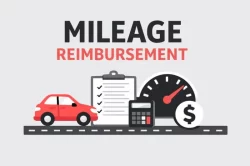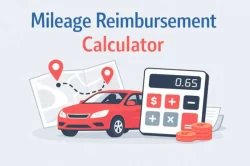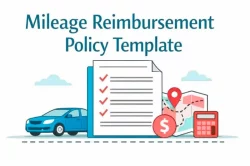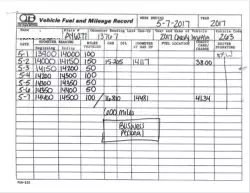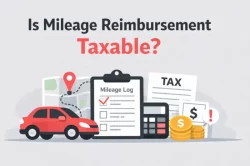Table of Contents
A car allowance is extra money your job gives you instead of a company car. You use this cash for your personal car for work driving. It covers costs like gas and repairs.
What Exactly is a Car Allowance?
It’s a fixed payment from your boss. You usually get it each month. It’s a way to help pay for using your own car for your job. Think of it as part of your pay, but set aside for car use. Most folks use it for car payments or upkeep. But often, you can use it for anything. It’s different from getting paid for each mile you drive. And yes, it counts as taxable income.
Key Things About Car Allowances
Here are the main points about how a car allowance works:
- You get to pick your car: You can buy, lease, or keep your own car.
- It’s taxed: The money is added to your pay and taxed like normal income.
- Covers car costs: This money helps pay for things like:
- Monthly car payments or lease costs
- Fixing and taking care of your car
- Insurance and fees
- Gas money
- Paid regularly: Most often, you get it every month. Sometimes it’s every three months or once a year.
How Car Allowances Compare
Let’s see how a car allowance stacks up against other ways your job might help with your car:
| Thing | Car Allowance | Company Car | Pay Per Mile |
|---|---|---|---|
| Who owns the car | You | Your boss | You |
| Is it taxed? | Yes (as income) | Yes (as a perk) | Usually no |
| How much freedom? | A lot | Not much (company picks) | A lot |
| Need proof? | No | Not really | Yes (write down miles) |
What’s a Normal Car Allowance Amount?
In 2024, a typical car allowance in the UK is around £3,000 to £4,500 a year. That’s about £250 to £375 a month. But the amount can change a lot based on your job and the kind of work you do. Companies usually figure out the amount based on how much it costs to lease or run a decent work car. In the US, the average is often higher, from $300 to $800 a month in 2024. For jobs where you drive a lot, like sales, it could be $1,000 a month or more. Remember, there’s no set rule from the government on the amount, so it’s up to each company. If you are struggling with creating your policy, check out mileage reimbursement policy samples.
FAQ
What is a car allowance?
A car allowance is a fixed sum that employers provide to employees regularly to cover expenses related to using their personal vehicles for business purposes. It is up to the company’s mileage reimbursement policy whether the employees receive a fixed sum or get reimbursed for actual car expenses or miles tracked by services like Timeero. A mileage reimbursement calculator is an easy tool to estimate rate-based mileage reimbursement.
Is a car allowance taxable?
Yes, generally a car allowance is considered taxable income unless it’s provided under an accountable plan with proper expense documentation.
Can MileageWise help manage a car allowance program?
MileageWise assists by accurately tracking and documenting mileage, ensuring compliance, and potentially helping to keep reimbursements tax-free under an accountable plan.



